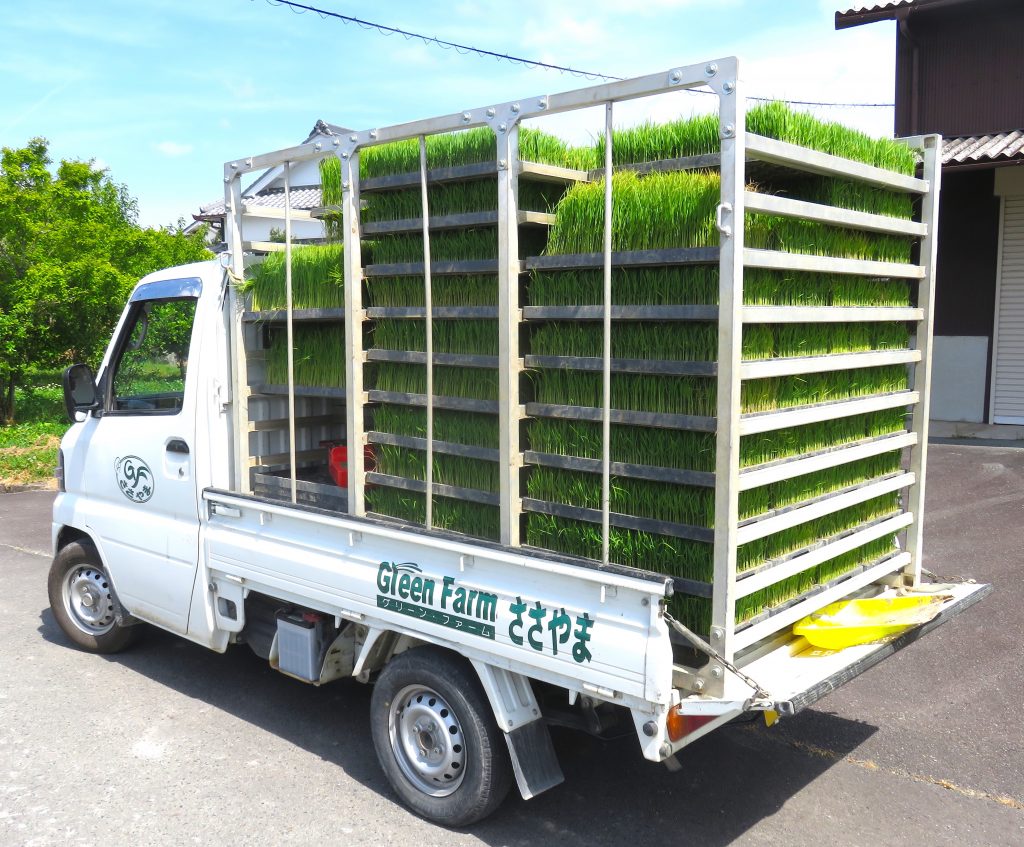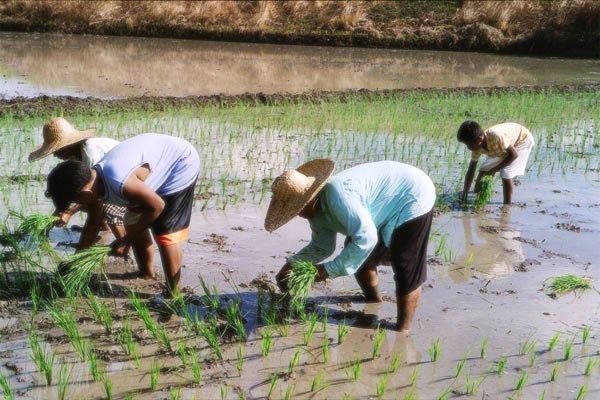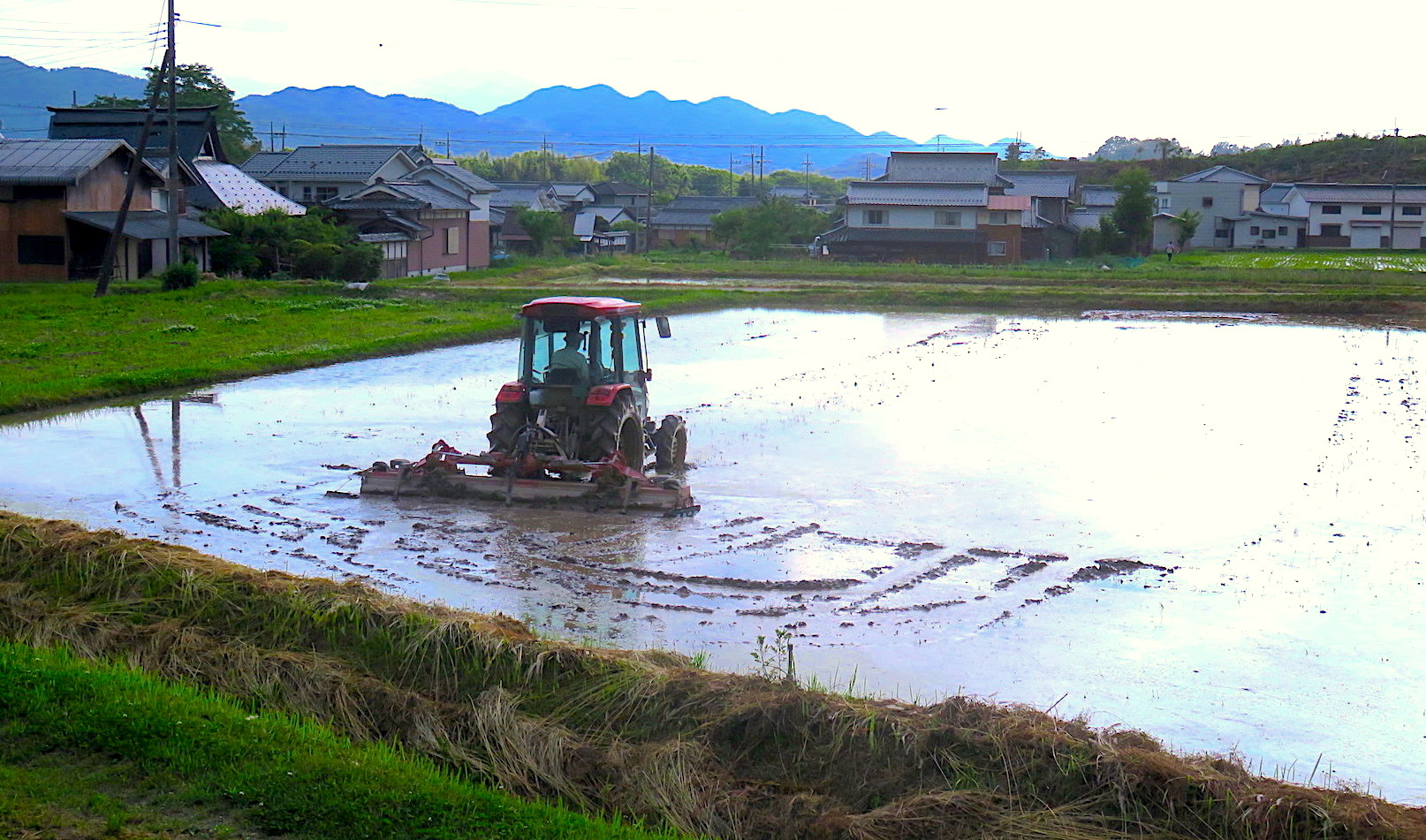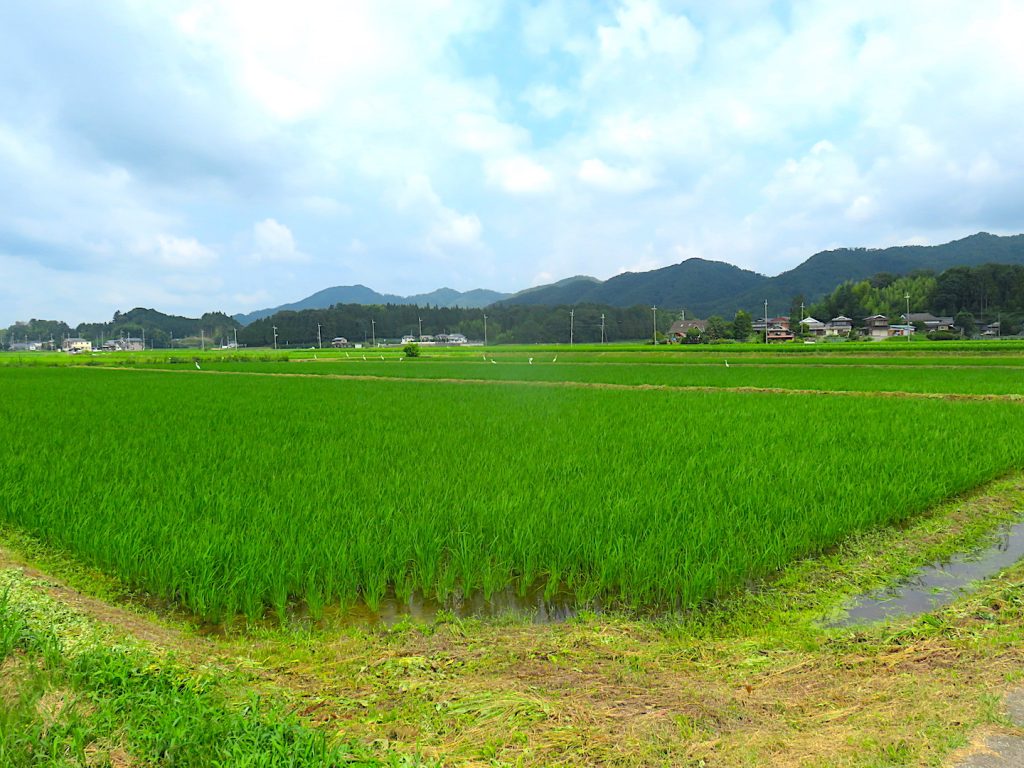Preparing the soil to plant rice is a wet, muddy, mucky mess. l know because I’ve watched them prepare the fields directly in front of my house several years on and off.
 They flood the area, let is soak for several days, then drive a tractor through the mud — I’m amazed they don’t get stuck — giving it a hardy blend and a stir, because apparently having the amiable consistency of quicksand makes it more of an inviting and nurturing environs for the soon-to-be-planted rice seedlings.
They flood the area, let is soak for several days, then drive a tractor through the mud — I’m amazed they don’t get stuck — giving it a hardy blend and a stir, because apparently having the amiable consistency of quicksand makes it more of an inviting and nurturing environs for the soon-to-be-planted rice seedlings.
The seedlings are grown in green houses by the millions, sold to the farmers, then the real fun begins.
 Now there may have been a time — at least a hundred years ago — when Japanese farmers planted them by hand. This tedious method is still practiced in parts of China and nations of Southeast Asia. I’ve seen it myself in my travels.
Now there may have been a time — at least a hundred years ago — when Japanese farmers planted them by hand. This tedious method is still practiced in parts of China and nations of Southeast Asia. I’ve seen it myself in my travels.
But leave it to the Japanese to come up with a machine that does in minutes what used to take a week. No need for artificial intelligence or quantum computing here. Just good basic mechanical design does the job.
It’s astonishing how quickly the rice grows. Soon our entire valley is an intense, vibrant green, going from almost incandescent lime to the rich, deep emerald of a mature plant. Maybe I have too much time on my hands and too little excitement, but when I ride my bike through the fields of viridescent rice, I’m struck by the incredible beauty of it all.
And to think. This entire process starts with men — who as I noted in another article — never outgrew the desire to play in the mud.





